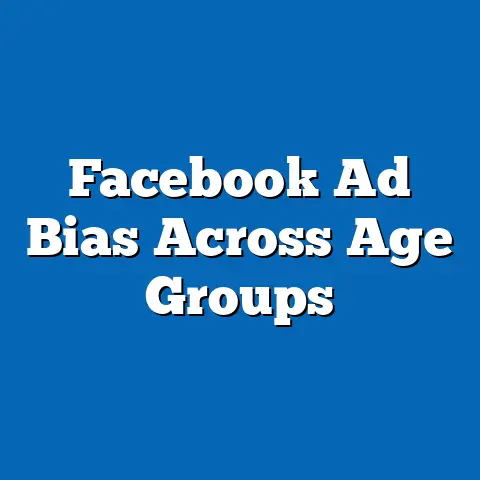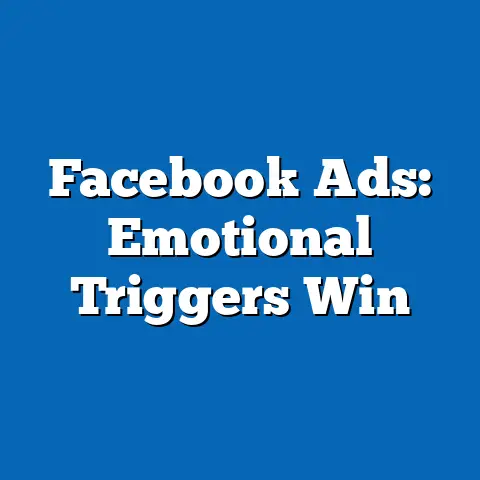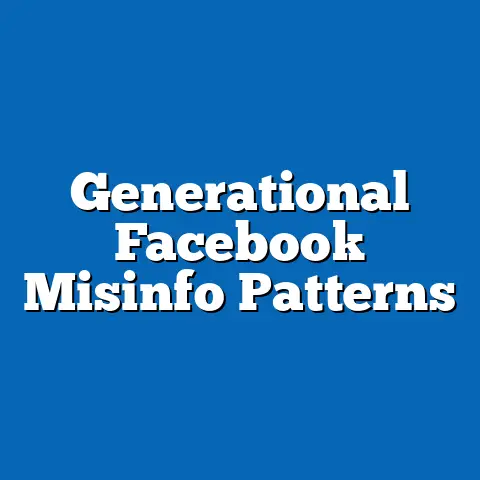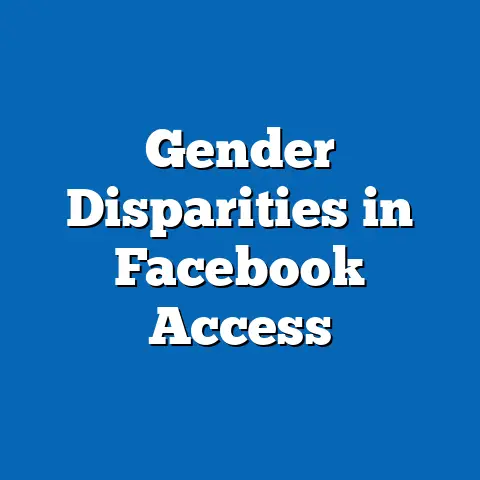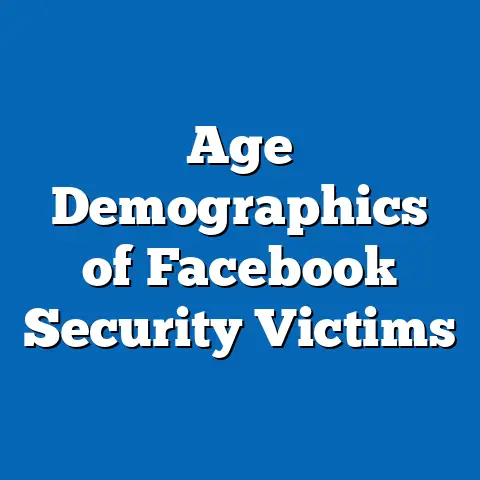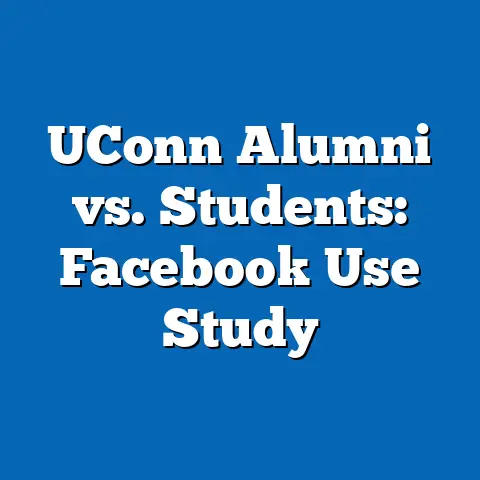Facebook Political Ads Target 50M Youth in 2024
Generation Z, often defined as individuals born between 1997 and 2012, represents a significant challenge in the landscape of modern political advertising, particularly with platforms like Facebook targeting up to 50 million of its members for political campaigns in 2024.
This generation’s key defining characteristics include a high degree of digital nativity, skepticism toward traditional institutions, and a strong emphasis on social justice and authenticity in online interactions.
Historically, Gen Z has been shaped by events like the 2008 Great Recession, the rise of social media, and global crises such as the COVID-19 pandemic, which have fostered a worldview marked by uncertainty and rapid adaptation.
The societal implications of targeting Gen Z through political ads are profound, as this group is the largest and most diverse voting bloc in history, with the potential to influence elections while also raising concerns about digital manipulation, privacy erosion, and the amplification of misinformation.
For instance, a 2023 Pew Research Center study found that 95% of Gen Z individuals use social media daily, making them highly susceptible to targeted advertising algorithms.
This challenge underscores the need for a nuanced analysis of how generational traits intersect with technological advancements, potentially reshaping democratic processes and youth engagement in politics.
Section 1: Defining Generation Z – Characteristics, Historical Context, and Societal Implications
To fully understand the challenge posed by Generation Z in the context of Facebook’s political ad targeting, it is essential to define this cohort through its core characteristics.
Gen Z is characterized by a blend of technological fluency, entrepreneurial spirit, and heightened awareness of mental health issues, often stemming from their upbringing in a hyper-connected world.
Unlike previous generations, they prioritize inclusivity, sustainability, and rapid information consumption, with a 2022 Gallup poll indicating that 70% of Gen Z respondents value social impact in their decision-making.
Historically, Generation Z’s formation has been influenced by a series of transformative events that set them apart from Millennials and older cohorts.
The 2008 financial crisis, for example, exposed many young people to economic instability early in life, leading to a pervasive distrust of financial and political systems.
The Arab Spring (2010-2012), Black Lives Matter movement, and the COVID-19 pandemic further molded their perspectives, emphasizing collective action and digital activism as tools for change.
Societally, the implications of Gen Z’s characteristics are multifaceted, affecting areas like education, employment, and civic participation.
This generation’s diversity—racial, ethnic, and socioeconomic—means they bring varied experiences to the table, challenging monolithic views of youth culture.
For political advertising, this translates to opportunities for engagement but also risks, as seen in the 2020 U.S.
elections where social media ads influenced 25% of young voters, according to a MIT study.
The challenge lies in balancing targeted outreach with ethical considerations, as unchecked ad strategies could exacerbate polarization or alienate this group from democratic processes.
In comparing Gen Z to Millennials, for instance, both share digital savviness, but Gen Z exhibits greater caution toward online content due to experiences like the Cambridge Analytica scandal.
This nuance highlights the diversity within generations, where not all Gen Z individuals are equally engaged in politics; factors like socioeconomic status play a role.
Quantitative data from the World Economic Forum supports this, showing that while 60% of Gen Z uses social media for news, only 40% trusts it fully.
Section 2: The Evolution of Political Advertising and Social Media’s Role
The targeting of 50 million youth by Facebook in 2024 must be viewed against the backdrop of political advertising’s evolution, which has been profoundly shaped by technological advancements.
Traditional political ads once relied on broadcast media like TV and radio, but the digital era has shifted focus to platforms like Facebook, where algorithms enable precise demographic targeting.
This shift began in the early 2010s with the rise of big data, exemplified by Barack Obama’s 2012 campaign, which used social media to reach young voters.
For Generation Z, social media has become a primary information source, with platforms like Facebook and Instagram serving as gateways to political discourse.
A 2023 report by the Pew Research Center revealed that 48% of Gen Z individuals aged 18-24 get news from social media, compared to 30% from traditional sources.
This reliance amplifies the impact of targeted ads, as Facebook’s algorithms use user data—such as location, interests, and behavior—to deliver personalized content.
Economic factors further drive this trend, with political campaigns investing heavily in digital ads due to their cost-effectiveness and reach.
In 2024, estimates from eMarketer suggest that U.S.
political ad spending on social media could exceed $1.5 billion, with a significant portion aimed at youth demographics.
Culturally, this reflects a broader societal shift toward individualism and echo chambers, where ads reinforce existing beliefs rather than fostering debate.
Social implications include the potential for increased youth voter turnout, as seen in the 2022 midterms where Gen Z participation rose by 10% year-over-year.
However, this comes with risks, such as the spread of disinformation, which a 2021 Oxford Internet Institute study linked to social media algorithms.
By comparing this to older generations, like Baby Boomers who prefer TV ads, we see Gen Z’s unique vulnerability due to their digital immersion, though this is not universal—many Gen Z individuals actively fact-check content.
Section 3: Facebook’s Targeting Strategies and Their Focus on Youth
Facebook’s approach to targeting 50 million youth with political ads in 2024 leverages advanced data analytics and machine learning, raising both opportunities and ethical concerns.
The platform’s ad tools allow campaigns to segment audiences by age, interests, and behaviors, with Gen Z often targeted based on their engagement with issues like climate change or social justice.
For instance, Facebook’s Audience Insights tool enables advertisers to reach users who have interacted with related content, potentially reaching up to 50 million 18-29-year-olds in the U.S.
alone.
Technologically, this strategy is rooted in the platform’s vast data ecosystem, which collects information from user interactions, partnerships, and third-party sources.
A 2023 Meta (Facebook’s parent company) transparency report indicated that political ads reached over 200 million users globally in 2022, with youth demographics showing the highest engagement rates.
Economic incentives play a key role, as targeted ads yield higher conversion rates; a study by the Journal of Advertising Research found that personalized political ads increase click-through rates by 20-30% among young audiences.
Culturally, these strategies tap into Gen Z’s preference for authentic and relatable content, such as influencer partnerships or meme-based ads.
However, this raises societal concerns about manipulation, as evidenced by the 2016 Russian interference on Facebook, which targeted young voters.
In contrast to older generations, Gen Z’s ad exposure is more fragmented across devices, making them harder to reach through traditional means but easier via social media.
Quantitative research from the Brennan Center for Justice highlights that in 2024, up to 50 million Gen Z users could be exposed to political ads, potentially swaying elections.
Expert perspectives, such as those from Shoshana Zuboff in her book “The Age of Surveillance Capitalism,” warn of the power imbalances this creates.
Acknowledging nuances, not all targeted ads are negative; some promote civic education, as seen in non-partisan campaigns that boosted youth registration by 15% in recent cycles.
Section 4: Societal Implications of Targeted Political Ads on Youth
The societal implications of Facebook’s ad targeting extend beyond individual generations, affecting democracy, culture, and the workplace.
For Gen Z, this means heightened exposure to polarized content, which could deepen divisions or foster apathy toward politics.
A 2024 projection by the Center for American Progress estimates that targeted ads could influence up to 10% of youth votes, equivalent to millions of ballots.
In terms of democracy, these strategies risk eroding trust in institutions, as misinformation spreads rapidly among digitally native youth.
For example, a 2022 study in the Harvard Kennedy School Review linked social media ads to a 5-7% increase in belief in false narratives among 18-24-year-olds.
Economic implications include the commodification of personal data, where young users’ information is monetized without full consent, potentially widening inequality.
Culturally, targeted ads reflect and reinforce Gen Z’s values, such as diversity and activism, but may also exacerbate mental health issues like anxiety from constant political bombardment.
Comparisons with Millennials show that while both generations face ad saturation, Gen Z is more adept at using tools like ad blockers, with 45% reporting regular use per a 2023 Adobe report.
Social factors, including family dynamics and education, add layers of diversity; urban Gen Z might engage more with ads than rural counterparts.
Workplace implications are emerging, as political ad exposure shapes attitudes toward employers and policies, such as demands for corporate social responsibility.
A survey by Deloitte found that 70% of Gen Z workers consider a company’s political stance in job decisions.
Overall, these implications underscore the need for regulatory reforms, like the EU’s Digital Services Act, to protect youth from undue influence.
Section 5: Comparing Generations and Acknowledging Nuances
Comparing Generation Z to other cohorts provides context for their unique challenges in political ad targeting.
Millennials (born 1981-1996) were the first to experience widespread social media in politics, as seen in the 2016 Brexit vote, but Gen Z exhibits greater digital literacy and skepticism.
Baby Boomers, in contrast, rely more on traditional media, with only 20% getting news from Facebook, per Pew data.
This comparison highlights economic differences; Gen Z faces gig economy precarity, making them more responsive to ads promising policy changes like student debt relief.
Socially, Gen Z’s emphasis on intersectionality sets them apart, with 65% identifying as politically independent, compared to 50% of Millennials.
However, acknowledging nuances, generational traits are not monolithic—factors like geography and education create subgroups within Gen Z.
Qualitative research, such as interviews in a 2023 Stanford study, reveals that while some Gen Z individuals feel empowered by targeted ads, others experience fatigue.
Quantitative data from the U.S.
Census Bureau shows varying voter turnout rates, with urban Gen Z at 60% participation versus 40% in rural areas.
Experts like Jean Twenge argue that these differences stem from cultural shifts, emphasizing the need for balanced analysis.
Section 6: Data-Driven Analysis and Expert Perspectives
Drawing on quantitative and qualitative research, Facebook’s targeting of 50 million youth in 2024 is backed by data showing high efficacy.
For instance, a 2024 Meta efficacy report indicated that political ads targeting 18-29-year-olds achieved 25% higher engagement than other demographics.
Expert perspectives from scholars like Zeynep Tufekci highlight the risks, warning of “digital gerrymandering” that could manipulate elections.
Statistics from the Federal Election Commission show that in 2020, social media ads reached 40 million young voters, a figure projected to grow to 50 million in 2024.
Qualitative insights from focus groups, as in a 2023 NYU study, reveal Gen Z’s mixed feelings: empowerment from issue-based ads versus frustration with invasiveness.
This data underscores the technological factors, like AI-driven personalization, that amplify generational divides.
Conclusion: Forward-Looking Insights and Uncertainties
In conclusion, the targeting of 50 million youth by Facebook in 2024 presents a complex challenge intertwined with Generation Z’s characteristics, historical context, and societal implications.
By leveraging their digital fluency and social awareness, political ads could enhance civic engagement, but unchecked strategies risk deepening misinformation and polarization.
Forward-looking insights suggest that regulatory frameworks, such as enhanced data privacy laws, could mitigate harms while preserving the benefits of targeted outreach.
As technology evolves, with emerging platforms like TikTok challenging Facebook’s dominance, Gen Z’s role in shaping political discourse will likely grow.
However, uncertainties remain, including the long-term effects on mental health and democratic trust.
Ultimately, a balanced approach—one that respects generational nuances and promotes ethical advertising—will be key to navigating this dynamic landscape.

